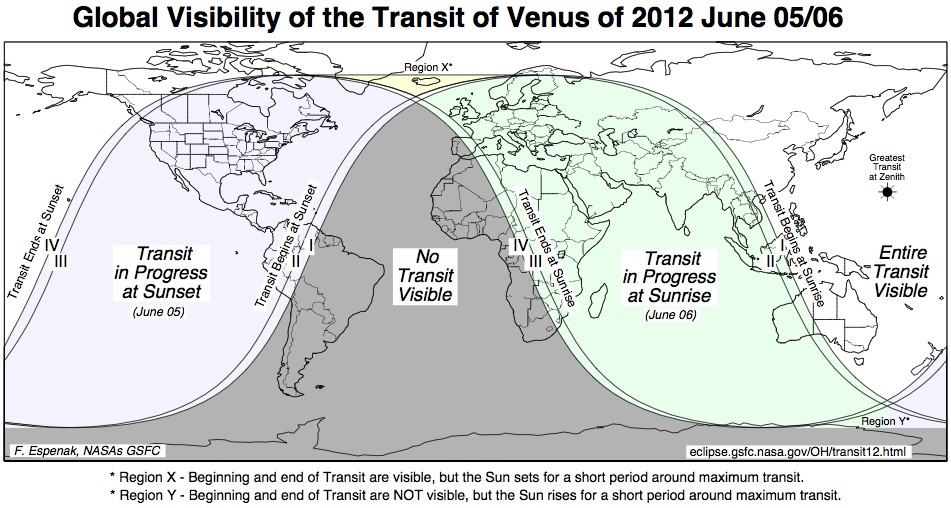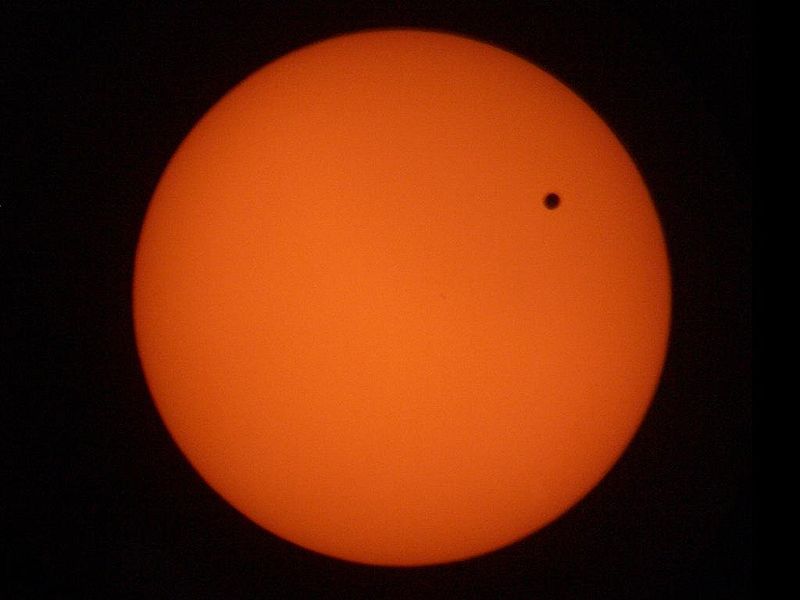Physicist: There wasn’t a question behind this, but it’s worth announcing.
On June 5th or 6th (depending on where you are in the world) Venus will pass directly between the Sun and the Earth, so it’s basically a solar eclipse, but with Venus instead of the Moon. In the last couple years there have been about a dozen Lunar eclipses and several solar eclipses. However, Venus transits are very rare. Unless you’re taking some seriously awesome vitamins, you probably won’t live to see the next transit in 2117.
The transit will be happening for the better part of 7 hours. It begins around 22:00 June 5th UTC and will continue until about 5:00 June 6th UTC. For those of you in the Americas, that’s 3 pm Pacific / 6 pm Eastern on June 5th until after the Sun sets. You can look up the exact time, city by city, here.
 If you’re planning on looking at the transit take precautions. There’s some very basic wiring deep in our brains that make us not want to look at the Sun. Don’t fight it. Even if you do try to see the transit unaided you’ll be too busy wiping your watering eyes and burning blind patches into your retinas to see anything.
If you’re planning on looking at the transit take precautions. There’s some very basic wiring deep in our brains that make us not want to look at the Sun. Don’t fight it. Even if you do try to see the transit unaided you’ll be too busy wiping your watering eyes and burning blind patches into your retinas to see anything.
Welding glasses are pretty cheap and let you look at the Sun (or welds) comfortably. Also, while you may look like a jack-ass, wearing 4 or 5 pairs of shades at the same time does the trick as well. Otherwise, you can use a magnifying lens to project a picture of the Sun onto a piece of paper. Hold the lens in such a way that it projects a circle, then slowly move it back and forth until you see Venus. More (useful) techniques here.
In addition to being a kick-ass thing that won’t happen again until the 64th Potus is in office (give or take), the Transit is a great chance for exoplanet hunters to practice their craft. Exoplaneteers have been trying to read the composition of the atmospheres of planets around other stars when those planets transit by looking at the light that filters through their atmospheres. By looking at the light filtering through Venus’ atmosphere they’ll be able to double-check their technique. If the readings they get next week line up with what we already know the composition is (from probes that have physically been to Venus and sampled the air) then they’re on the right track.








Pingback: El Planeta Venus Estará Visible | Nistido.com
Speaking of damage to the eyes from bright light, I notice when I wake up or anytime it’s too bright I can’t stand it with both eyes but with one eye it feels OK. Obviously it wouldn’t be. I guess the alarm circuit is wired a little too far upstream from the transducers.
Pingback: Pluto! | Ask a Mathematician / Ask a Physicist
Fortunately, the year 2004! In my high school years I had this binoculars, I covered them with photographic films, and viola I saw a tiny perfect dot moving very very slowly across yellow sun.